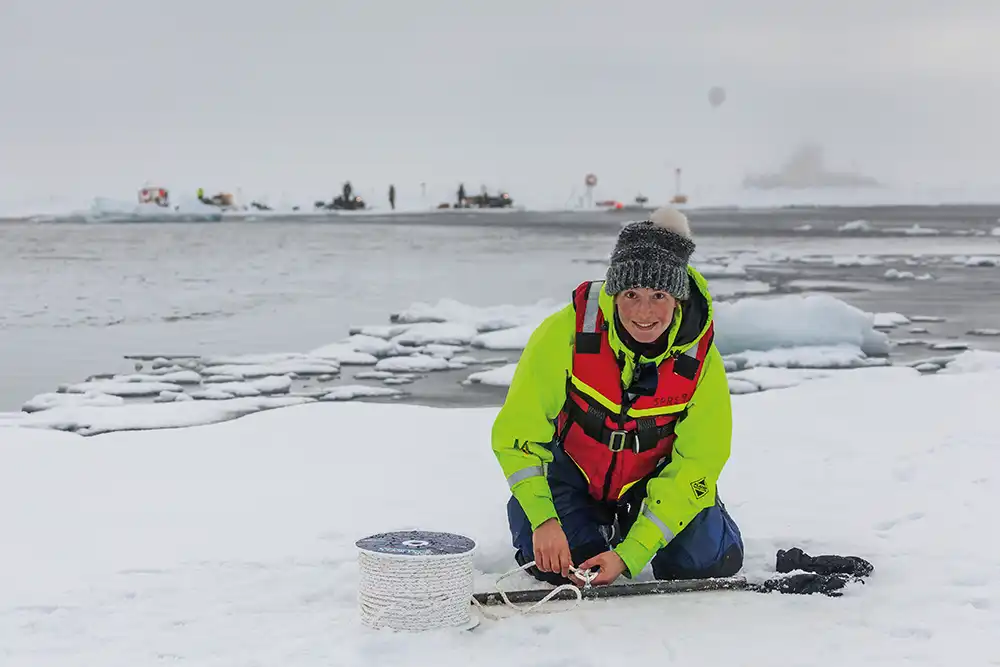
Physicist, oceanographer and creator Helen Czerski talks to Jo Caird about Blue Machine, her award-winning guide concerning the physics of our oceans
By Jo Caird
Helen Czerski had been working on the Scripps Establishment of Oceanography in California for simply a few weeks when she realised she wanted to take up scuba diving.
Having accomplished a PhD in explosives science, however on the lookout for a brand new subject of research to swimsuit her current experimental skillset, the physicist had lately embarked upon an instructional profession within the science of bubbles.
‘I’d by no means thought concerning the ocean,’ Czerski remembers. ‘But it surely was very clear to me, as soon as I’d had this light-bulb second that the ocean was a spot, that I needed to study to dive.’
Czerski progressed shortly, going from complete newbie to dive grasp in lower than three years, and coaching as a scientific diver from the beginning.

Whereas she doesn’t dive in the middle of her personal analysis (bubble science is essentially performed beneath breaking waves within the open ocean, not a context that’s significantly conducive to secure or fulfilling scuba diving), it’s an expertise that has proved eye-opening by way of Czerski’s angle to the underwater world.
‘Diving is the closest any of us will ever come to flying,’ she says. ‘You get to discover a three-dimensional world. You have a look at issues in a really totally different approach and that is a gigantic privilege.’
It was this angle that knowledgeable the writing of Blue Machine: How the Ocean Shapes Our World, Czerski’s extremely regarded widespread science guide concerning the physics of the ocean.
It covers complicated matters reminiscent of how the ocean shops and redistributes vitality, and the passage of sound and light-weight via water, however in a extremely partaking approach – accessible even to these whose final grappling with physics was many moons in the past.
Weaved in are many partaking tales of the ways in which animals and folks work together with the ocean, from the Scottish herring lassies of the early twentieth century to the sharks of the frigid Arctic with a lifespan of greater than 250 years.
Blue Machine can also be fantastically written, making for a massively evocative studying expertise, significantly for these of us who really feel at residence within the watery realm.
A lot to Czerski’s shock, the guide was lately awarded the 2024 Wainwright Prize for Conservation Writing. ‘It was a shock, firstly, as a result of I didn’t assume I’d written a conservation guide,’ she says with amusing. However successful was an ‘huge privilege. I see that prize as recognition that the ocean itself is fascinating, one of the crucial fascinating matters of our time.’
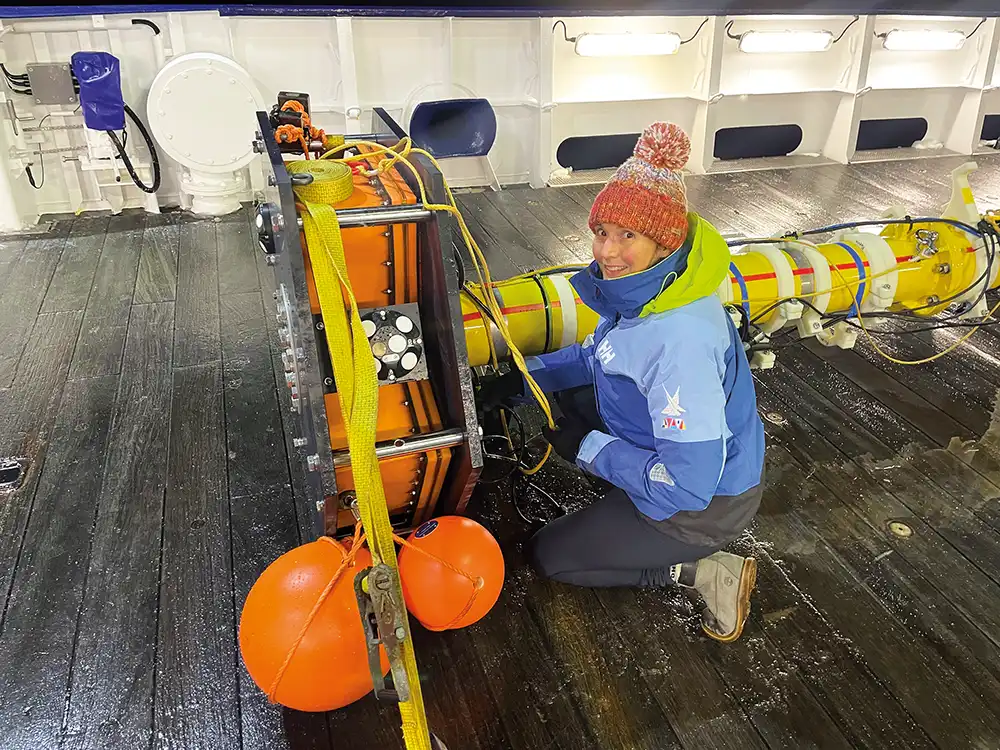
Inform us about writing Blue Machine.
I acquired a job on the Scripps Establishment and shortly realised that I’d by no means thought concerning the physics of the ocean. I completely acquired the concept this was a liquid engine, and nobody had ever informed me about it, and that was actually annoying.
I went on via my postdoctoral diploma and getting a fellowship, and saved studying extra concerning the ocean and I saved attending to the purpose the place I might see that there was a narrative there, there’s this massive factor that folks aren’t seeing.
So once I was on the lookout for an concept for my second guide [her first, Storm in a Teacup: The Physics of Everyday Life, was published in 2017], this was kicking round in my thoughts. That somebody wants to speak concerning the physics of the ocean, as a result of nobody’s doing it.
Additionally that I might see so many tales that weren’t being informed as a result of they didn’t have a spot.
Has the response shocked you?
The primary response tends to be, ‘I didn’t know the ocean did something’. However as quickly as folks give it some thought, they get it. On reflection, it’s superb timing: persons are way more conscious of every part that’s going improper, however we’re previous the purpose of conservation being about lists about reusable mugs and plastic straws.
The world is massive and complex, and folks need to see the massive image. They need frameworks to grasp the world that enable them to make selections. And partly it’s simply that folks like listening to about worms with 1,000 anuses!
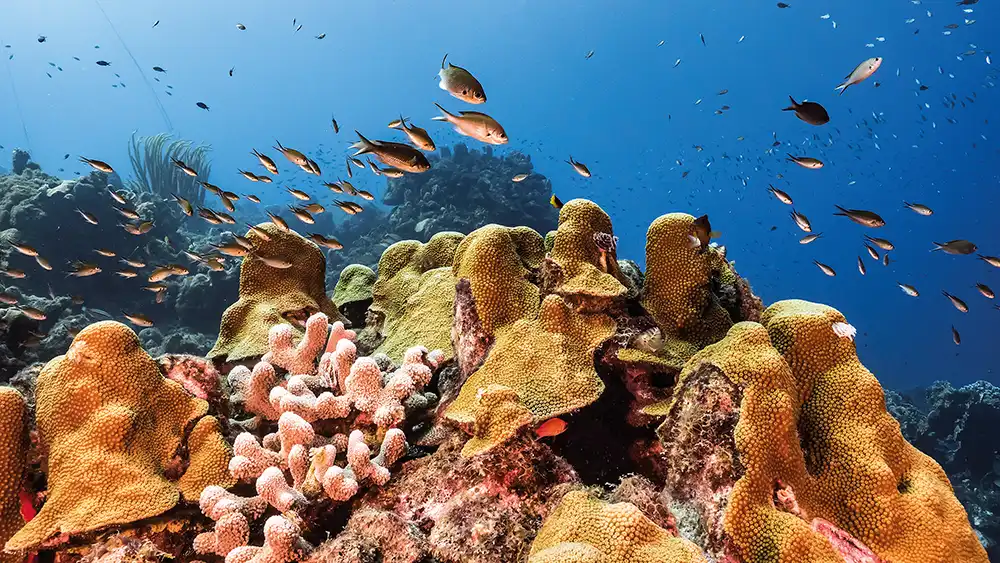
I’m very grateful for the response that it’s had. You write a science guide and also you anticipate that it’s going to get to a science-curious viewers. This has gone a lot additional, and I didn’t anticipate that.
There are two novels that had been out this 12 months which have been long-listed for the Booker Prize, which cite Blue Machine as an affect! All of a sudden, it appears like there’s numerous accountability, which is simpler after you’ve written it than it’s as you’re going alongside.
Did you’re feeling a strain to current options to the local weather and biodiversity crises?
My function is to not counsel options, though there are some apparent ones. My function in that is to say, ‘Take a look at the world. That is what it’s, and that is the way it works. You’re taking that perspective and also you make your individual selections.’
There’s lots of of books itemizing all of the issues you are able to do and may do and the world can do and may do. However the motive they aren’t ever going to work with out at the very least some books like mine, is that they don’t make sense until you’ve acquired a much bigger perspective. And you probably have a much bigger perspective, you’ll work that out for your self.
The factor that we’re lacking is these frameworks on what it means to be a citizen of planet Earth, in part of a bodily system that works like this. As a result of we dwell by Earth’s guidelines – we’ve set to work with it and never towards it. Different folks can counsel options.
I’m not in that sport, aside from decarbonising and never destroying biology – these two issues are crucial. However simply telling folks doesn’t change their thoughts, displaying them why it’d matter, that modifications minds.
What I need to do is present folks the bodily world as it’s, and to indicate how interconnected is and exquisite it’s, after which folks will take that and do issues.
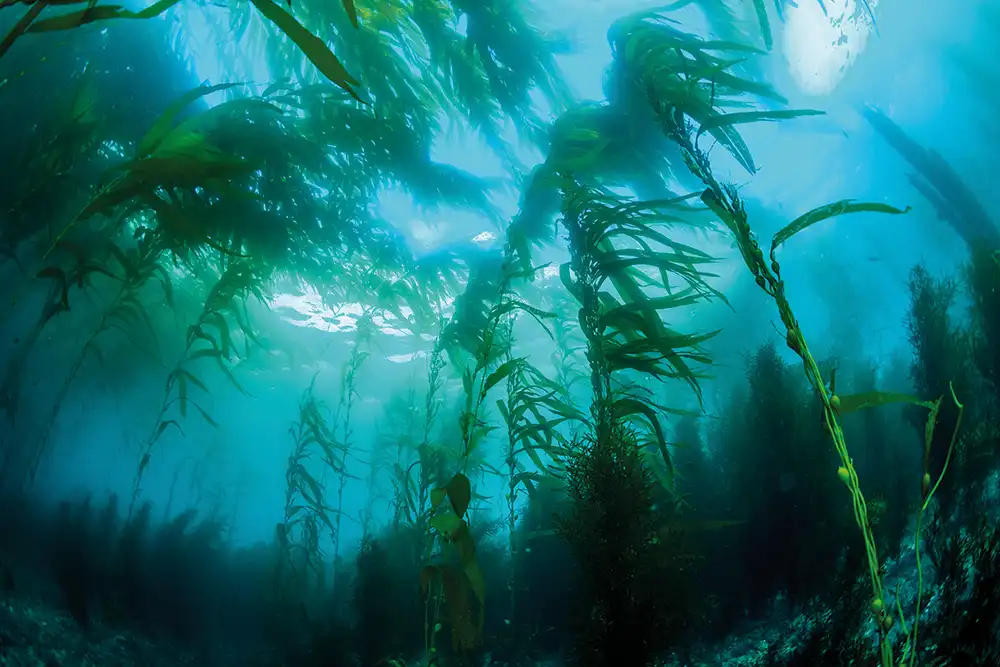
What has diving given you, as an oceanographer?
A wholesome concern of issues looming! One of the vital terrifying issues that has occurred to me underwater – and this received’t be unfamiliar to anybody who dives within the UK, I’m positive – is diving HMCS Yukon, which is a giant warship that was sunk off the coast of San Diego in actually turbid water.
You went down the rope and couldn’t see something. You’d wait on the backside after which there’s a second the place the soup clears and immediately there’s this big, nice massive battleship.
I hated that second, it was simply terrible. But it surely was a really fascinating reminder that we’re visible creatures, and the ocean will not be a visible place.
Clearly, if I had been a dolphin, I might have identified that factor was there all alongside, as a result of there would have been socking nice audio reflection off it. However I used to be counting on senses that simply aren’t very helpful underwater, definitely in coastal areas the place you’ve acquired very turbid water.
It’s a reinforcement that you’re not advanced for this setting. Not one of the ocean creatures would have skilled what I did. I used to be out of my place.
Diving additionally provides me a visceral understanding of motion, since you really feel surge, you’re feeling currents pulling you alongside. That feeling of the ocean as shifting and doing issues, and that this isn’t only a passive pond.
After which simply the privilege of seeing a special world. An octopus is the closest any of us are ever going to return to seeing alien life.
It amazes me that folks go on and on a few doable chemical signature of one thing that presumably is perhaps associated to life on some exoplanet – it’s like, ‘There’s an octopus! Have you ever seen an octopus looking?’
Solely independently advanced intelligence, advanced for a special world, for a special set of bodily constraints. Why would you not need to go and go to an alien planet?
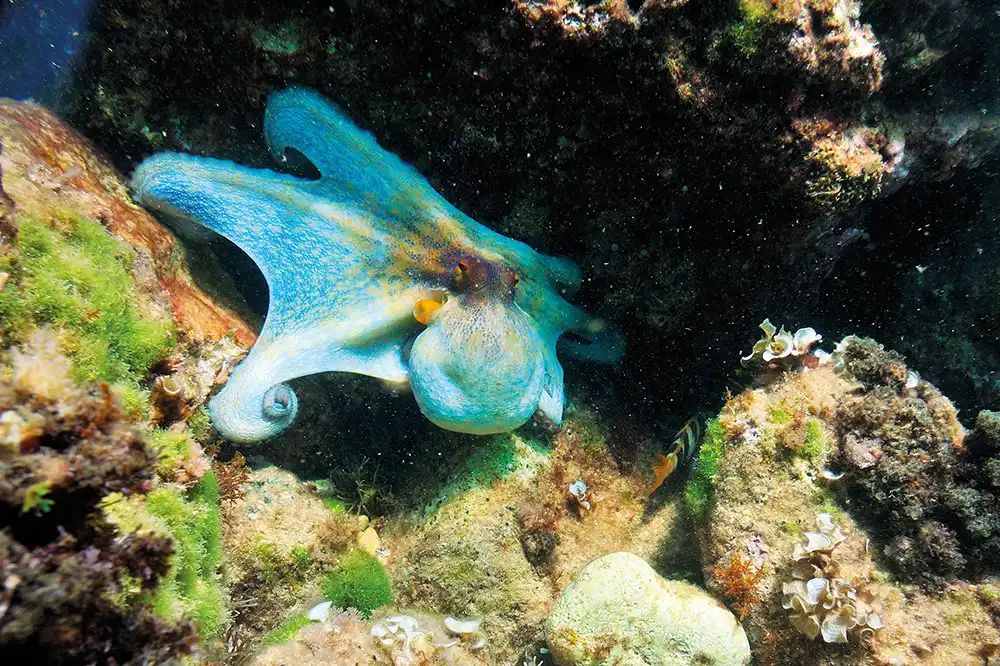
If you’re put within the ocean, you see not solely that your perspective doesn’t matter in any respect, however that there are such a lot of alternative ways of fixing these bodily issues.
You see how the world appears to be like in case you simply shift the foundations in a different way. Experiencing that may be a fantastic factor.
What is going to divers specifically get out of studying your guide?
The factor about people diving is that we solely get to dabble across the edges. So even in case you’ve had the privilege of seeing a few of this underwater life, and you realize what a dwelling sponge appears to be like like, seeing how that connects to the worldwide image continues to be one thing you’ve acquired to do in your creativeness, actually, greater than in particular person.
However I believe what you are able to do in particular person is think about the connection. As soon as you realize what to search for, you’ll be able to see the connection.
For instance, on distant islands in the course of massive oceans, sharks are sometimes fairly essential in fertilising the reef, as a result of they feed out at sea, after which they arrive into the reef to relaxation and to breed, and shark poo is fertiliser.
So then whenever you see a shark in that setting, it’s not simply one thing which is thrilling as a result of it’s a giant animal, you’re truly seeing the connection.
For divers, studying my guide will hopefully change the way in which they see the world they already assume they know. You may think about the connections with the surface world.
Relatively than simply being a creature that goes previous, it’s part of a much bigger, bodily engine. You’re seeing the tip of the iceberg, however then hopefully you’ll have a number of the instruments to think about the issues it’s linked to.
Extra nice reads from our journal


